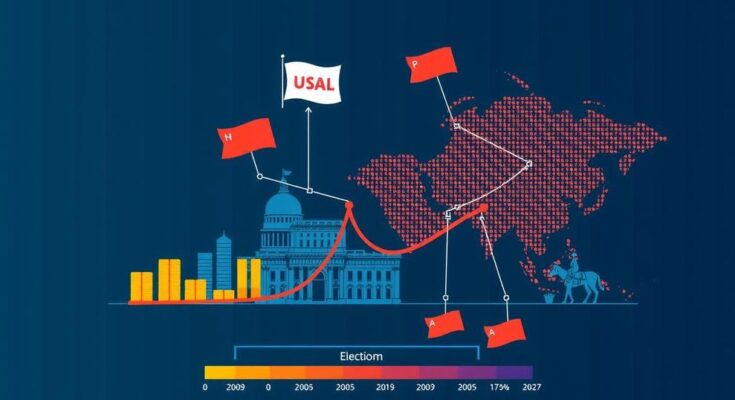The recent election outcome reveals a significant desire among voters for transformational change, with dissatisfaction towards incumbents playing a pivotal role. Despite extensive Democratic campaigning, issues like inflation and immigration were overshadowed by the allure of emergent political alternatives. This shift signals a broader anti-incumbency trend, highlighting challenges for the Democratic Party moving forward in a complex political environment.
The recent election outcome reflects a profound challenge for President Joe Biden and the Democratic Party, highlighting a pervasive issue among American voters: dissatisfaction with the status quo. Despite a focus on initiatives like Project 2025 and the prominent role of inflation and immigration in the national dialogue, many voters seemed to prioritize a desire for transformative change over established party platforms. The election serves as a stark reminder of the political currents shifting against incumbents, illustrating a broader disenchantment among the electorate. Several reasons contributed to this electoral result. The Democratic Party, having held the presidency for twelve of the last sixteen years, encountered significant resistance from a populace eager for new direction. Despite ongoing efforts and messaging aimed at combating various social and economic issues, perceived failures and the allure of Trump’s outsider image proved compelling. Consequently, this election signifies not merely a rejection of Democratic policies but a broader desire for systemic overhaul from across the political spectrum.
The political landscape in the United States has shifted notably following the Great Recession and the pandemic. Economic uncertainty has led many voters to express frustration with the established political parties. The Democratic Party’s previous dominance in presidential elections over the past three decades contrasts sharply with the current political environment, wherein anti-incumbency sentiments are rising. This shift highlights a potential exhaustion with traditional political structures and an appeal for radical change, particularly reflected in the recent election’s results where Donald Trump garnered significant support despite his controversial campaign.
In summary, the recent election marks a significant turning point in American politics, underscoring a prevalent desire for change among voters. The Democratic Party’s long-standing dominance faces new challenges from a populace yearning for alternatives to the status quo. As the implications of Trump’s potential re-election unfold, the broader consequences of anti-incumbency sentiment will likely shape the future political landscape in the United States, demanding attention from both major parties to reassess their strategies and messages.
Original Source: www.nytimes.com




